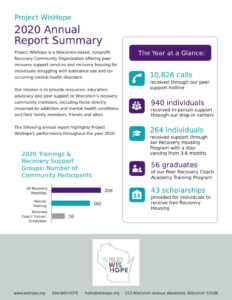Frequently in recovery from alcohol or substance use disorder, people mention the concept of “fighting.” It’s all about the battle against addiction or grappling with nagging feelings of temptation. Sure, the way forward isn’t easy. But if all recovery amounts to is scraping and clawing against the omnipresent weight of using, the prospect of recovery may seem daunting to those new to the concept.
“I don’t want to feel like this anymore.” The countless times this sentiment has led to rehabilitation indicates how many people begin their path to recovery in contrast to inebriation, which logically checks out. However, setting out to “not feel” a particular way also denies human nature. People feel. The human race is defined by shades of emotions that inform our actions, not the absence of emotions.
Rather than extinguishing the embers of addiction altogether, searching for a state of neutrality “fireproofs” the recovery landscape. Early on, many want to despise their substance(s) of choice. Recovery veterans attest to nearly instinctive aversions to relapsing, like nerve endings familiar to the heat of the burn. Striving to feel indifferent to temptation marks a subtle difference from the lack of any feeling whatsoever, yet the distinction makes a difference in experiencing long-term recovery. With this approach, individuals can measure the slow and steady fade of addiction over time in hopes of better positioning themselves—not against alcohol or substance use disorder, but in the acknowledgment of its searing potential.
WHERE IS THE “NEUTRAL PLACE” FOR THOSE IN ADDICTION RECOVERY?
Creating a space of nonplussed acceptance during recovery comes with a perfect storm of patient mentors and an internalized commitment to growth. Neutrality directed at the disorder, past transgressions, and the guilt associated with them requires healing. Resisting resentment and fear sounds a lot easier in theory than practice. The road to neutrality’s delicate balance mandates trust, above all else, that growth is actively rooting itself in the work of recovery. So, where exactly should those striving for addiction recovery be reaching with their self-empowerment ambitions?
- Control: The illusion of control mires the strides of recovering individuals like a field of quicksand. When addiction deals double doses that remind users of the limited scope of their control, the human reaction is to exercise an overinflated sense of control in other aspects of life. Neutral recovery refocuses one’s perspective surrounding control. It is impossible to account for every circumstance that might trigger temptation, just as it is impossible to predict whether or not one’s willpower will remain constant from one day to the next.
- Self-Judgment: Reframing alcohol or substance use disorder is just one side of the coin. The other side reframes how individuals in recovery view their actions: past, present, and future. In the same way that individuals are not almighty and therefore possess no right to judge their equals, the same individuals fall short of the criteria to judge even their own actions. An inverse of the golden rule—treat yourself as you hope to be treated—comes to mind. Viewing one’s actions without judgment becomes key to honing a neutral balance of sober living and the temptations of addiction.
- Reaction: People control their reactions to all the punches that life has to throw—nothing more, nothing less. The “perfect world” daydreaming game buys into a dangerous misconception and not the one which might immediately come to mind. Imagining an ideal society denies the reality of the present, but the real danger resides in the unspoken assumption that one could ever create a perfect society from scratch. While it is important to aim for progress—implementing gradual changes within both collective and individual capabilities—it is impossible to take steps towards pushing these capabilities without first understanding the limits of one’s control.
- Acceptance: Finding the capacity to build neutrality towards one’s addiction feels a lot like letting go. Letting go of ego and letting go of what cannot be controlled. Letting go of expectations of what the self and the world will be like now and in the future. “Accepting” might sound like a passive verb, but this action entails taking responsibility and ownership for precisely what falls within the realm of one’s control. Acceptance takes practice and an open-minded willingness to relearn habits born of addiction. Occupying a neutral frame of mind in the face of recovery’s enduring trials can prove fleeting, but upon finding this mindset even just once, returning to neutrality becomes easier and easier with time.
The effects of use disorder change our perception of control over future expectations. People typically want to skip ahead to the “being there” part of their lives—“there” meaning the time after all the work, hardship, and overcoming are complete. This makes sense because going through that process often crushes the idealization of the self. But rather than racing past the difficulties along the way, embracing them without judgment can act as the closest possible conduit to skipping ahead, as this work is never truly finished. The sooner individuals embrace the neutrality of their perspective, the sooner they can genuinely appreciate what work has been put in thus far. At WisHope, we understand that the road to recovery is a life-lasting pursuit, and we aim to provide you the tools and resources to do this long after your stay at our treatment facilities or recovery homes. Don’t wait to get help — call us today at (844) 947-4673.


